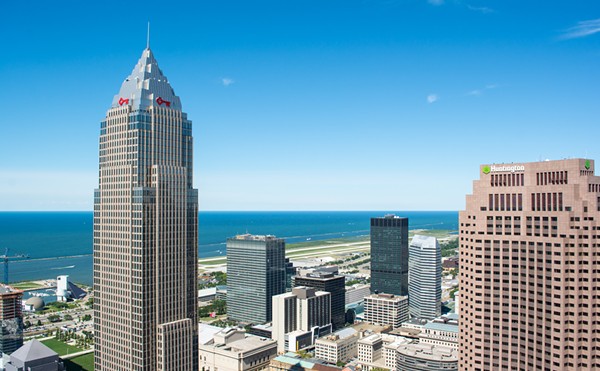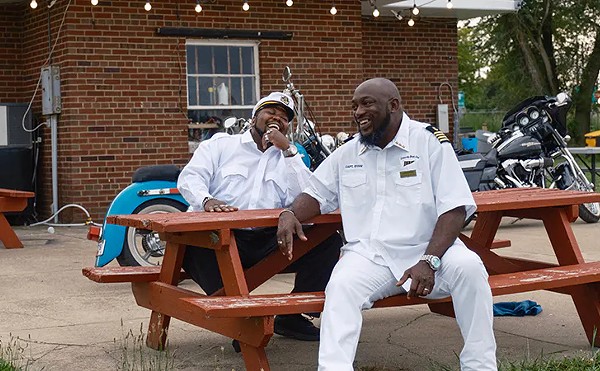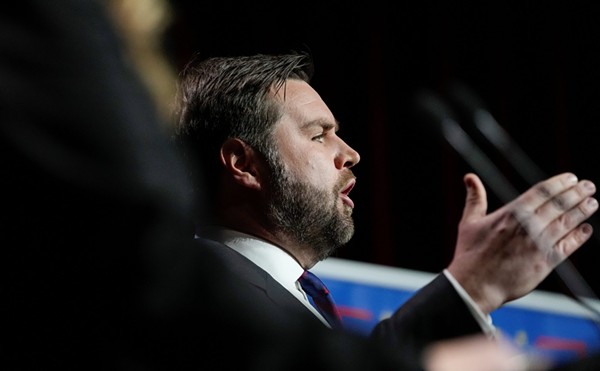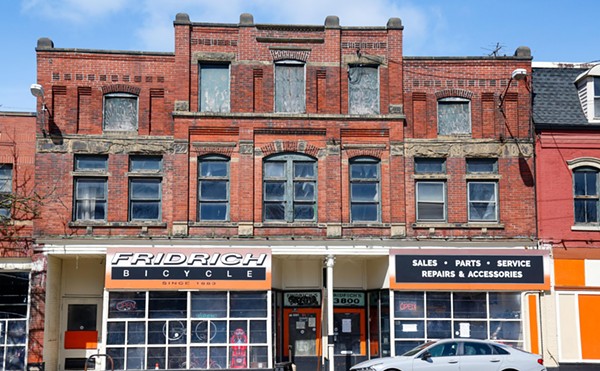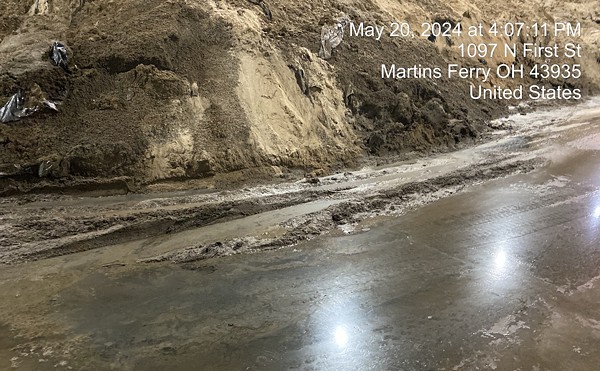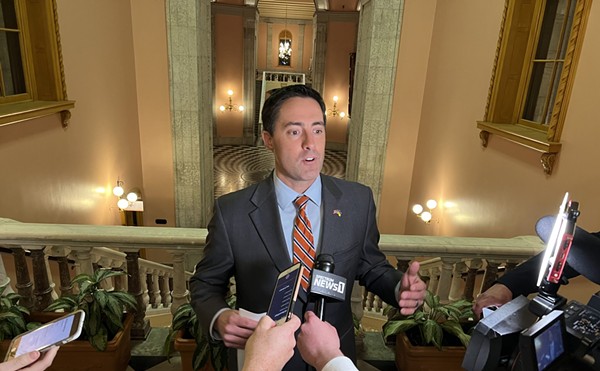Peoples Express belongs to time capsules now. Yet Dolan pines for the bustling Burke of his college days. Back then, Wright Airlines flew once an hour to Detroit, no reservations required. Today, most folks use the airport only when there's a grand prix, an air show, or a rib fest. "Why is Burke like a deserted bowling alley?" asks Dolan, who chairs the city's Aviation Committee.
He blames Mayor White for letting the airport stagnate when it could be a link on "the highway system of the new century." The administration, in turn, says the mayor has worked harder in the last five years to improve air travel than any mayor has in the last 50.
Finger-pointing, of course, is ritual at City Hall, but what separates this from the workaday spat is the bold suggestion that Burke be closed in favor of recreation and housing. After all, city planners have long treated the lake as something best viewed from a freeway or behind the window panes of a museum or football stadium. Though council recently OK'd lakefront plans for the Crawford transportation museum, Cleveland finally seems to be viewing Erie as a recreational asset -- decades after waterfront development became the rage in urban planning.
The most vocal advocate, Councilman Joe Cimperman, says closing Burke should be considered, given the lack of pleasure areas along the lakeshore. "I think the argument speaks pretty clearly in favor of green space," he says.
Others are climbing aboard. Steven Litt, The Plain Dealer's architecture critic, routinely complains about obstructions along the lake. PD editorial writer Beth Barber echoed Litt in a July column, describing the Crawford as "one more blob smack-dab between thee and the 'sea.'" And even though Cuyahoga County Commissioner and mayoral candidate Tim McCormack concedes he's no urban design expert, he sees Burke as "one of our best opportunities to dramatically change the way we look at our city and each other.
"I would cite Duluth, I would cite Milwaukee, I would cite Chicago, and even Detroit-Windsor now is coming to grips with its waterfront in a much more aggressive and positive way," McCormack says.
Yet grand ideas tend to dull when confronted by the pragmatics of executing them. Ask the aviation crowd about killing Burke, and they'll say advocates know not what they speak.
"The people who talk about closing the airport don't know what the hell they're talking about," says Tom Slavin, the hawk-nosed general manager of Million Air, a fuel and maintenance hangar. He refers to Litt as "that twit" before launching into a lecture on journalistic due diligence. Spend five minutes researching the issue, Slavin says, and the conclusion points squarely to keeping Burke.
For one, the airport was built on a dump. Slavin says a crew that installed runway lights a few years ago had to wear contamination suits. This doesn't trigger images of children frolicking among daisies. And if Burke were closed, the city would have to return $3.8 million in FAA grants. "You just don't turn off the light and shut the door," says Reuben Sheperd, director of the city's Department of Port Control.
But the favorite argument among Burke supporters is a number: 100,000. That's the sum of "operations" -- fly-speak for takeoffs and landings -- Burke handled last year. If Burke closed, Sheperd says 75 to 80 percent of those flights would go to Hopkins, already congested at 330,000 ops a year. Given the siege it took to greenlight a third runway at Hopkins, closing Burke "would take the entire city back 10 years," Sheperd says.
Dolan agrees, suggesting that Cleveland's economy is too fragile to risk impeded air travel: "It doesn't matter if we have parks, if we have no jobs and no opportunity."
Still, trickle-down economics is a tough sell. Residents look at Burke and see a chain-link fence keeping them from the lake. They imagine executives boarding jets bound for golf resorts, while they have to huff to Edgewater and Gordon parks to stick their toes in the sand. To a certain extent, that's true: 9 out of 10 Burke operations are listed as "general aviation," meaning they cater to the corporate jet set and flying enthusiasts. All of which has Sheperd admitting that, if Burke closes, "there's not going to be a whole bunch of picketers."
Nor is everyone convinced of the airport's economic indispensability. The Greater Cleveland Growth Association, tellingly, has not taken a position on the airport. CSU urban studies professor Ned Hill says that, between Hopkins, Akron-Canton, and scattered reliever airports, the region can survive without Burke. What Cleveland desperately needs, he says, are thousands more downtown residents to increase the tax base and enliven the city's core, which would in turn attract businesses. "You can't do that unless the waterfront is an amenity," he says.
Hill cautions that developing the lakefront is not a slam dunk. Structural engineers may find the land unfit for anything other than runways. But the city, Hill believes, shouldn't resign itself to a 400-acre Cessna sanctuary. "What is the opportunity cost of that land?"
The truth is, no one's happy with the status quo. Urban dreamers think of Burke as a waste of space and money (it ran a $1.9 million deficit last year). Pro-Burkers say the airport concourse resembles "a mausoleum made out of terrazzo," in Slavin's words. He blames Burke's listlessness on a succession of aviation dilettantes the mayor has named to the Port Control. (Sheperd is a former prosecutor who last served in the Department of Public Safety; Burke Commissioner Khalid Bahhur worked only in acquisitions at Hopkins.) "There is no working plan for where this airport should be," Slavin says.
Sheperd acknowledges the city needs to better market Burke, but he says the mayor is committed to a lakefront airport. Last year, White announced a $55 million plan to build a new runway, hangars, aprons, and parking spaces. A plan has yet to be submitted to the FAA, which would pony up most of the money. Meantime, the Army Corps of Engineers is extending the shore with mud dredged from the Cuyahoga River. Though the process will take 15 years, Burke should be able to build another runway when the earth settles. Between Burke and expanded Hopkins, Sheperd argues that it won't be air travel that holds Cleveland back.
Lack of access to Erie is another matter.




